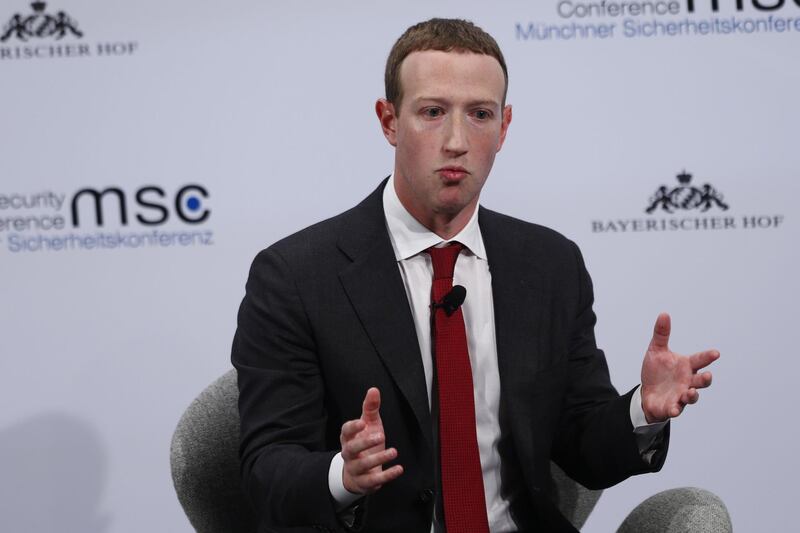Facebook has uncovered a fake internet-based news network operated from India that ran pro-Qatari content including a website first exposed by The National as a bogus publisher.
The social media network's first monthly report into information operations exploiting its platform highlighted the website Manchester Weekly, which it said was at the heart of an international publishing operation that sought to target Qatar's neighbours.
The Facebook monthly statement said the network had been banished from its platform.
"We removed a network of 37 Facebook accounts, 32 pages, 11 groups and 42 Instagram accounts," the report said.
"This activity originated in India and focused on the Gulf region, United States, United Kingdom, and Canada.
"Although the people behind this network attempted to conceal their identities and co-ordination, our investigation found links to aRep Global, a digital marketing firm in India."
The National reported in January 2018 that Manchester Weekly was publishing false reports on conflict zones such as Somalia, including fabricated UN reports.
The website invented a political editor under the name of Carmelo Cruz. The Twitter account under the Cruz name was set up as far back as 2015. The account was suspended on Tuesday.
The National last year exposed another fake writer named Marcus Salles, who had moved from publishing material on Manchester Weekly using the blogsite Medium to niche news sites including Asia Times and LobeLog.
Graphika, a social media analysis and research company, worked on the Facebook report. It called the campaign Operation Red Card, a reflection of the leading role that football played in its fake reports.
The output was slanted against Manchester City FC, which is owned by Sheikh Mansour bin Zayed, Deputy Prime Minister and Minister of Presidential Affairs in the UAE. It also most recently sought to target a rumoured bid for Newcastle United from Saudi Arabia.
Meanwhile there were fabricated articles enthusiastically supporting Qatar's role hosting the 2022 Fifa World Cup of football.
Graphika said it was a prime example of online influence for hire and very closely managed with an active policy of switching between online platforms.
"The persona Manchester Weekly UK was active at different times across different platforms," the Graphika report said.
"On Instagram, it posted 16 times between December 2017 and October 2018. Each post featured a branded meme, a short text and an invitation to click on the outlet’s link in its bio.
"The posts covered a range of subjects, including US foreign policy, the protests against French President Emmanuel Macron, and Kremlin propaganda. Again, they devoted significant coverage to Saudi and UAE policy, especially toward Yemen."
Our latest report examines a campaign attributed by @Facebook to an Indian PR Firm that created inauthentic accounts and used coordinated behavior to post anti-Saudi, anti-Emirati, pro-Qatar, and football-related content. Read the full report here:https://t.co/zjmbj1Ny0u
— Graphika (@Graphika_NYC) March 2, 2020
The common formula across the network run out of India was to post praise for Qatar and critiques of Saudi Arabia and the UAE, Facebook said in its report.
The accounts authors posed as local journalists and activists, and drove traffic to websites masquerading as local news outlets.
Facebook said it spent less than $450 on ads and had about 100,000 followers across Facebook and Instagram.
Facebook has sporadically released information about individual operations that it was sanctioning to try to address fears about breaches of its terms of use.
The report gave details of a total of five operations banished from Facebook, including an Egyptian network that operated 333 Facebook accounts, as well as hundreds of other platforms.
The sites were linked by Facebook to the Egyptian companies New Wave and Flexell.
They posted non-country specific memes in addition to content about local news and topics including alleged support of terrorism by Qatar, Turkey and the Tripoli-based Government of National Accord.
Accounts connected to that operation spent around $48,500 on ads boosting their content and had more than 6 million followers across Facebook and Instagram, a popular photo-sharing app.
Other operations were based in Iran, Russia and Myanmar. The February action brings to the number of networks busted for coordinated inauthentic behaviour to 50.
The National tried to contact aRep Global but has not received a response.







